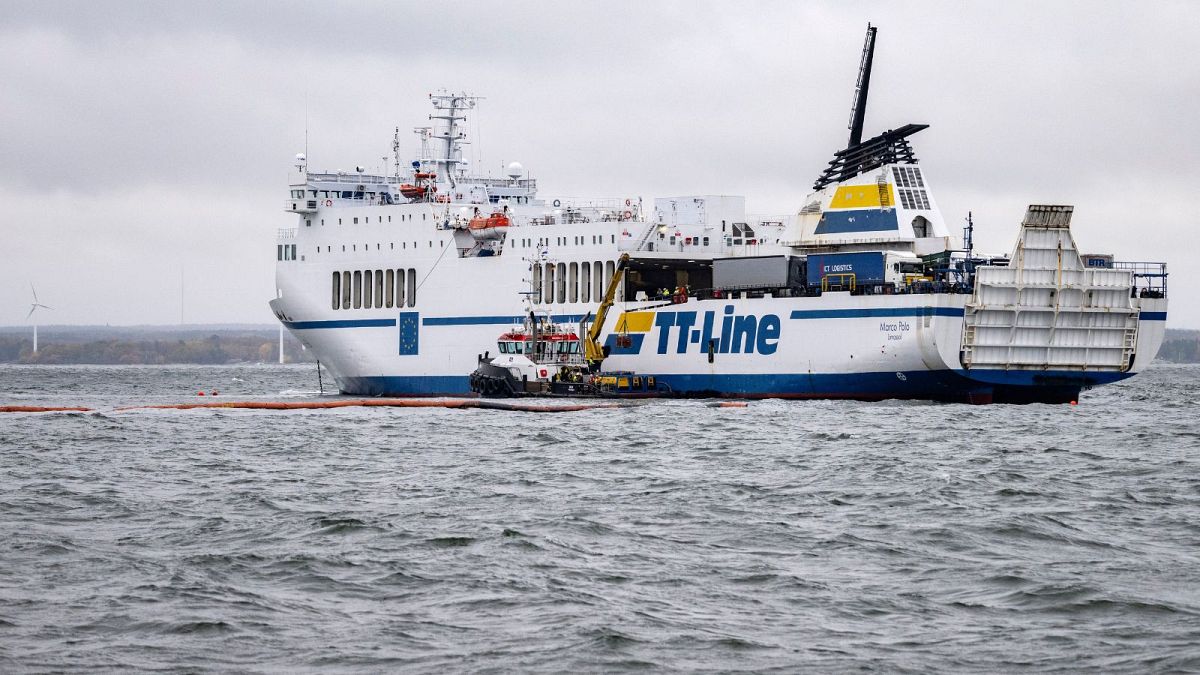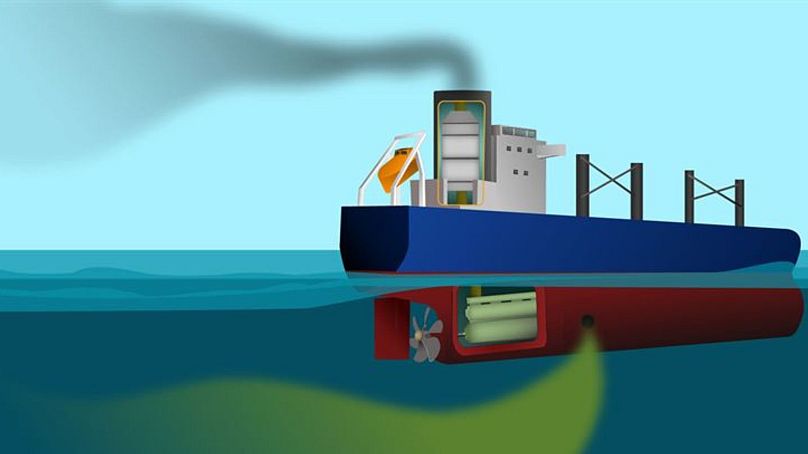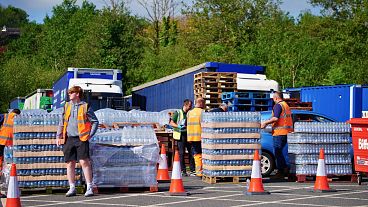Shipping companies have recouped the cost of ‘scrubber’ tech and are now benefiting from dirtier fuel, researchers have revealed.
Ship pollution doesn’t tend to hold much attention unless something has gone seriously wrong.
When the Marco Polo ferry ran aground off the coast of Sweden in October, the world watched its slow and leaky journey back to port, shedding tonnes of oil that reached more than 500 birds in Blekinge county.
But incidents like these are the tip of the iceberg for the Baltic Sea, Europe’s almost entirely closed arm of the Atlantic Ocean, surrounded by nine countries.
One of the more insidious sources of pollution into this unique body of water comes from a part of ships that is meant to reduce their impact on the environment: scrubbers.
These cleaning systems pump up and spray seawater over the exhaust gases that ships generate when burning heavy fuel oil, turning them to liquid before they can reach the air.
More than 200 million cubic metres of this toxic ‘scrubber water’ is released back into the Baltic Sea a year, researchers calculated.
Now, the experts at Chalmers University of Technology in Sweden have put a price tag on the pollution. It cost more than €680 million in marine damage between 2014 and 2022, they say.
Yet shipping companies that invested in scrubber tech have mostly recouped the cost, and are now benefiting from continuing to use cheap, heavy fuel oil instead of cleaner fuel.
“We see a clear conflict of interest, where private economic interests come at the expense of the marine environment in one of the world's most sensitive seas," says Anna Lunde Hermansson, co-author of the new study published in Nature Sustainability journal.
Why are scrubbers so polluting?
Scrubbers help to reduce air pollution, thereby complying with rules introduced by the International Maritime Organization (IMO) in 2020.
But the sulphur they prevent from going into the atmosphere is absorbed by the water instead, leading to severe acidification, and pollutants such as heavy metals and toxic organic compounds.
To give a sense of the scale of the problem, there are more than 700 ships with scrubbers in the Baltic Sea according to Chalmers’ estimates, and around 5,000 of them globally. That’s about five per cent of the total global fleet and - since it tends to be ships with high fuel consumption that invest in scrubbers - this five per cent accounts for 25 per cent of the global demand for heavy fuel oil.
“From the industry's point of view, it is often stressed that shipping companies have acted in good faith by investing in technology that would solve the problem of sulphur content in air emissions and that they should not be penalised,” says Lunde Hermansson.
“Our calculations show that most investments have already been recouped and that this is no longer a valid argument.”
According to the researchers’ calculations, the majority of the shipping companies that invested in scrubbers have already broken even - and are, in fact, now profiting from the continued use of cheap fuel. The total surplus by the end of 2022 for all the 3,800 vessels they studied was €4.7 billion.
The €680 million sum for scrubber water damage in the Baltic Sea is based on models for willingness to pay to avoid marine environmental degradation. But it should be considered an underestimate, the researchers say, since direct costs tied to heavy fuel oil spills from ships using scrubbers were not included.
Nor are the multi-million euro costs for cleaning up disaster cases like the Marco Polo.
“If the scrubbers had not existed, no ships today would have been allowed to run on this dirty residual fuel,” Lunde Hermansson points out. “That is why the scrubber issue is highly relevant to push the shipping industry towards less negative environmental impact.”
Which countries have banned scrubber water discharges?
The new study comes amid heated discussion on a potential ban of scrubber water discharge.
The issue is on the agenda at multiple levels within the IMO, Chalmers notes, and is also being debated at the EU level as well as on national levels such as the Swedish Parliament.
Sweden is yet to decide whether it will ban the practice, which is already outlawed in some local areas such as the Port of Gothenburg.
Denmark has recently decided to ban scrubber water discharges in its territorial waters, within 12 nautical miles of the coast. It joins a number of other European countries to do so including Germany, France and Portugal.
In total, there is some kind of restriction or ban on scrubbers in 17 EU countries, the United Kingdom, and Norway.
“We now hope that the issue will also be given priority in the Swedish Parliament,” says Lunde Hermansson. “This is a low-hanging fruit where we can reduce our negative impact on the vital marine environment.”




